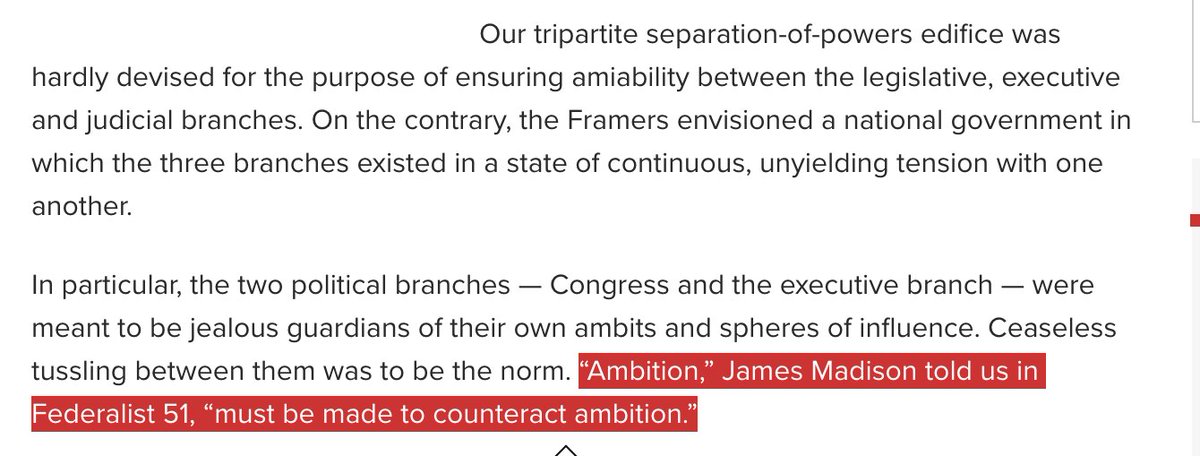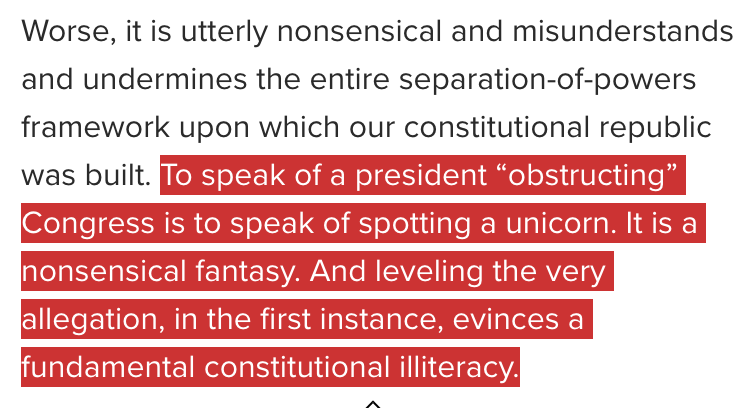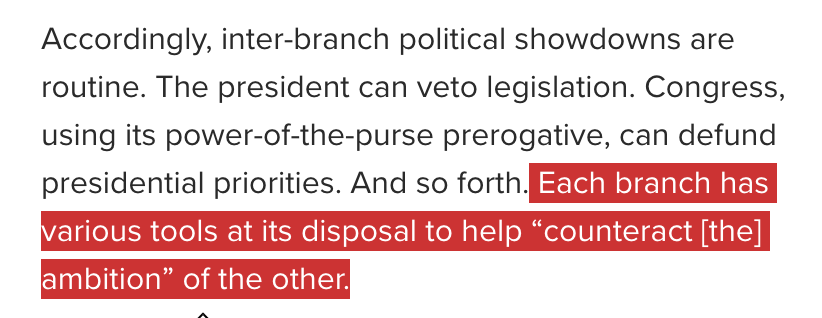
🧵 The conversation surrounding this is confused in ways that really backfire. For example, you often hear that the Founders more or less "wanted gridlock to be the norm," for it to be "hard to get anything done," to guard against radical change.
https://twitter.com/kerry62189/status/1341932964918259716
Naturally, this tends to lessen the public's respect for the whole system. It doesn't sound very attractive, or at least sounds like a particularly inefficient way of guarding against radical change. "They wanted to force compromise," is better, but also backfires.
It confuses the public into being mad that everyone "can't just get a long and compromise," like it's a matter of personal attitudes and conflict is a sign something is wrong. A more invigorating and accurate framing: 

We've basically inverted this framing into something very demoralizing. "Congress isn't supposed to do anything," rather than "Congress is gunning for a showdown." And we're so confused that one of the impeachment charges against Trump was "Obstruction of Congress." 

The point is that the branches were supposed to be actively tactical, and were given a set of tools to use against each other. Not "do nothing." 

But the idea, of course, is that the opposition exists *for a reason,* not just for the sake of slowing things down. The public gets mad about shutdowns, but they also admit they don't want their reps to compromise. They want to obstruct certain things. 

The way out is by being more strategic in how issues are "bundled" together in one bill. Done badly, this allows constant "hostage-taking." I don't expect Congress to get its act together, though. It's working for lobbyists, not the public.
Looking back, I should have been more bothered by the absurdity/insolence/pointlessness/needless divisiveness of the impeachment process, which, to everyone's misfortune, probably contributed to the deranged response to the pandemic. 

Once again, though, I disagree that House Democrats "abused their power." This was a legitimate use of power, but they used it foolishly and with a reckless disregard of the public interest.
Weirdly, impeachment has always produced this kind of confusion. Even in 1868, Congress was flailing, because the high crimes and misdemeanors reference is so vague and distracting. No one could figure out what it originally meant.
My best guess is that the Founders just assumed impeachment would be decided by the level of political support for it, and no one would get hung up on technical arguments. They did rest the case on technicalities in 1868, but lacked the political support to make it stick.
Finally, I forgot to say that when people agonize over "abuse of power," they're trying to find a rule or norm that can substitute for a sense of honor. But honor is not something that can be institutionalized.
Like, no, the Founders did not think presidents should go around pardoning themselves. But not because it was against the rules. They didn't feel a need to bar it because they weren't worried it would be appealing. The inherent dishonor was sufficient deterrence.
And, on top of that, there is the inherent dishonor of threatening a president with prison for purposes of political gain (and the stupidity of setting a precedent in which each side is prosecuted after losing power).
If a president becomes the target of behavior so dishonorable as to outweigh the dishonor associated with pardoning himself, we've got way bigger problems than that specific use of the power.
And if the president just does it out of guilty self-interest, it's just not that much of a threat to the system. The public won't respect him after that, and no one will be inspired to replicate his career. /🧵
• • •
Missing some Tweet in this thread? You can try to
force a refresh







